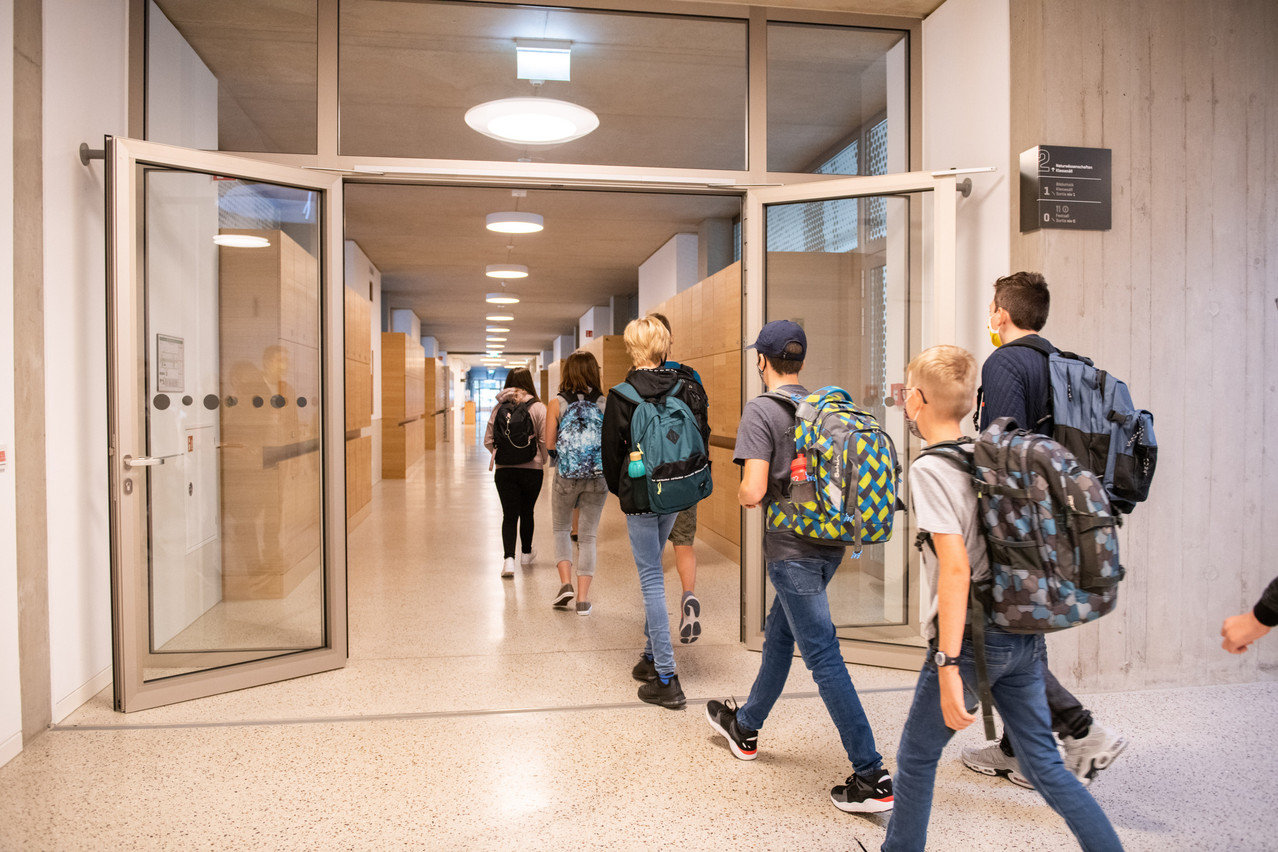To cope with the large number of pupils who don’t speak Luxembourg’s official languages, the government in 2016 opened the first public European school. The schools follow the system of having different language sections, as practiced in the schools affiliated to the European institutions. But unlike the European schools in Mamer and Kirchberg, it is free of charge and open to all pupils in Luxembourg.
Education minister Claude Meisch (DP) on Tuesday called the schools “an important alternative” to the traditional Luxembourg school system, which can see foreign pupils struggle with the language requirements.
While pupils learn Luxembourgish at pre-school level, alphabetisation in primary school takes place in German and French is added later as a teaching language.
The European school system on the other hand allows student to follow core classes in German, English or French. Some of the schools in Luxembourg also offer language sections in Portuguese, Spanish and Italian.
The Gaston Thorn European school in Luxembourg City, named after the former Luxembourg prime minister and European Commission president, joins a network of five other such institutions scattered around the country, including in Clervaux, Differdange, Junglinster, Mersch and Mondorf-les-Bains.
Nearly 5,000 pupils already attend one of these schools, documents submitted to parliament show. This number is set to grow to around 6,000 with the start of the next school year.
The Gaston Thorn school will be located at two sites, in Cessange for the primary school branch and the Geesseknäppchen campus in Merl for secondary school students and the school’s administration. Eventually, the sites should join at a new location in Limpertsberg.
Opposition pushes for school reform
Luxembourg children can also attend the schools and members of parliament urged the government to analyse why they are becoming increasingly popular with local families and what lessons could be learned for the regular school system.
Martine Hansen (CSV) said Luxembourg’s economy relies on expat employees but warned of building a parallel school system. The Christian democrat CSV, the biggest opposition party in parliament, abstained from the vote.
Fred Keup of the nationalist conservative ADR on the other hand warned that neither pupils nor staff at the European schools spoke sufficient Luxembourgish, although classes are mandatory for students. He submitted a motion demanding the government to abolish the system, saying that it is “substantially important” to bring students together.
Myriam Cecchetti (déi Lénk) also urged caution, saying the government should wait for a report into the European schools that is underway before opening any more of the institutions.
And Sven Clement of the Pirate Party, too, said there is no way around a reform of the Luxembourg school system in the long run even if the party supported the project up for a vote on Tuesday.
